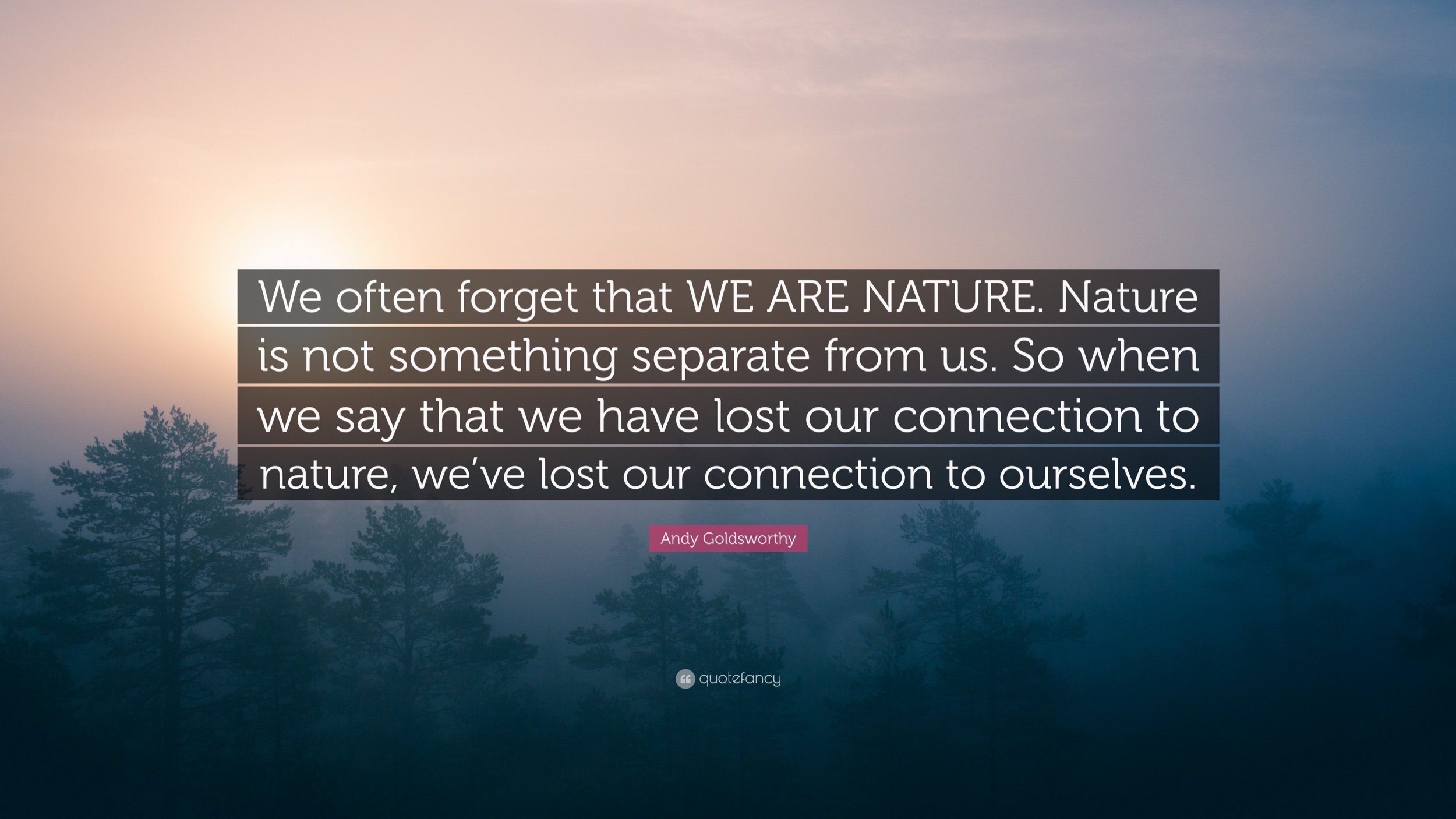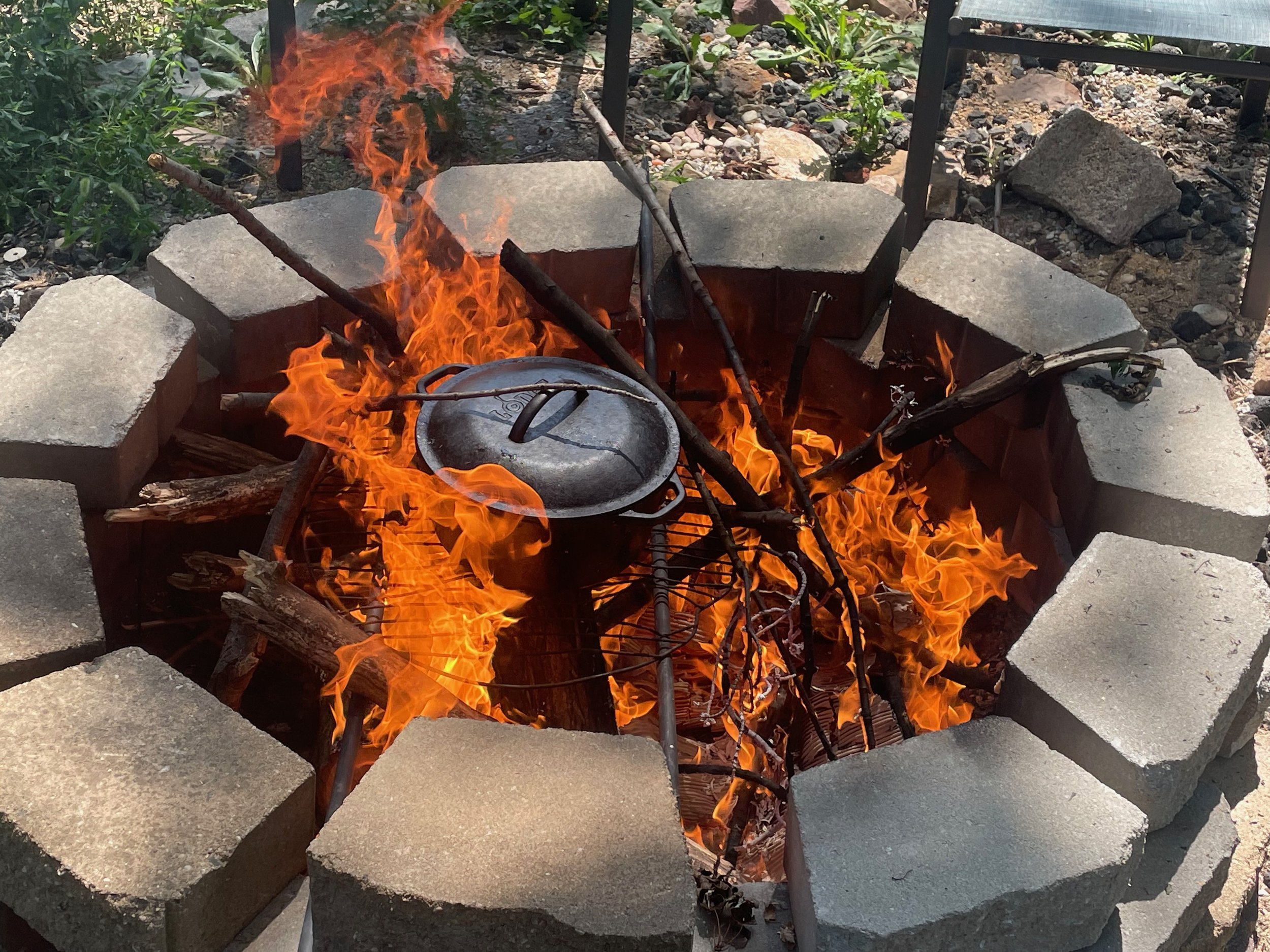Changing habits to align with nature
It appears to me that humans often strive to demonstrate their superiority over nature, attempting to conquer or shame it. After reading the enlightening book "Braiding Sweet Grass," I gained a better understanding of why Western European settlers viewed nature with disdain compared to indigenous people. In Western European mythology, we were cast out of the Garden of Eden, exiled from nature, and made strangers to it. In Native American mythology, they were born from nature and are an integral part of it—a beautiful origin story. This comparison sheds light on why the U.S. is often bent on conquering nature and sacrificing ecology at the alter of endless growth.
In my view, our disconnection from nature is rooted in our cultural origin mythology, leading us to unconsciously perceive nature as an adversary. This has profoundly affected our collective psyche in the Western world and likely plays a significant role in the current mental health crisis.
Why do we feel compelled to exterminate insects minding their own business outdoors, or why do we persist in maintaining lawns, even though most people dislike the labor and it's unnatural? It is because we have the urge to conquer, stemming from our perception that we were banished from nature. This disconnection has left us feeling profoundly out of balance. However, it is crucial to recognize that we are an intrinsic part of nature. No wonder we become frustrated living in isolated cubicles and rarely seeing the sun. No wonder we fall ill when consuming food pumped with toxins and mass-produced. We are, in fact, working against a system that wants to sustain and protect us if we let it.
Consider the example of Dandelions. These flowers were introduced to North America by European settlers as a gift to the natives because of their versatility. Dandelions can be eaten in various ways, and their roots are excellent for making tea. Every single part of the plant is useful. They are also considered "mining" plants, bringing essential nutrients to the surface. Not long ago, people intentionally cultivated dandelions on their lawns. I personally harvest every part of the plant, and they provide early-season food for my bees. Many so-called "weeds" have significant benefits for the land, and our efforts to eradicate them have harmed the soil and insect ecosystems to a disturbing extent.
Another consideration is energy efficiency to reduce resource consumption. In my pursuit of energy-efficient living, I stumbled upon the concept that heating or cooling only the body is more efficient than regulating the temperature of the entire living space. Perhaps nature has its way of achieving this?
Reflecting on these ideas, I decided to align my habits with the seasons and natural cycles. One simple habit change I've adopted is allowing my body hair to grow in sync with the seasons; for instance, growing a full beard in winter and shaving in the summer to stay cool. Such a small change can make a significant difference.
I've also adjusted my diet to consume foods that nature naturally provides each season. In summer, I focus on cooling foods like berries, melons, salads, and various vegetables harvested from my urban farm. I avoid spicy foods and prefer raw, uncooked options in the summer heat. Towards the end of the season, I transition to foods that can be stored for winter, such as horseradish, hot peppers, onions, turnips, beets, potatoes, and carrots. In the winter, I enjoy warm and spicy meals, like burritos with hot peppers or sandwiches with horseradish or ginger, which naturally warm the body. I adjust my beverage choices accordingly, enjoying iced tea or coffee in the summer and hot options in the winter. I also modify my cooking methods to avoid heating the entire kitchen, opting for an air fryer, toaster, or induction burner. Things that don’t create much radiant heat that an air conditioner will have to just cool down. I have even went so far to bake my bread outdoors over a fire in the summer.
Moreover, I've learned the importance of dressing appropriately for the season, wearing light clothes and short sleeves in the summer and heavier garments with long underwear in the winter. Dressing according to the weather can have a significant impact on personal comfort and energy consumption.
Not everyone can make this change, but I've also chosen to inhabit the part of my house that makes the most sense for the season. For instance, during the hottest months, I'll live in the cooler basement and let natural cooling keep me comfortable. In the winter, I'll return to my top-floor bedroom, which is easier to keep warm.
These changes, although they may seem trivial, make a world of difference in how one feels and one's overall mental well-being. They help me feel more in tune with the cycles of nature and life, fostering a deeper connection with the incredible world that surrounds us. It's important to remember that this way of life was commonplace a century ago, before the advent of modern conveniences like air conditioning. People were intimately connected with the food they grew and the provisions they needed for winter. It's high time we re-establish this connection with the natural world, which persists with or without our involvement. This might be the first step in reimagining our society's relationship with nature, recognizing that nature can be a demanding mistress but also one that readily provides for our needs if we slow down and learn to listen. I encourage you to take a walk through the forest, sit on the ground, and simply observe the richness and complexity of life that surrounds us—breathe, and reconnect with the natural world.


